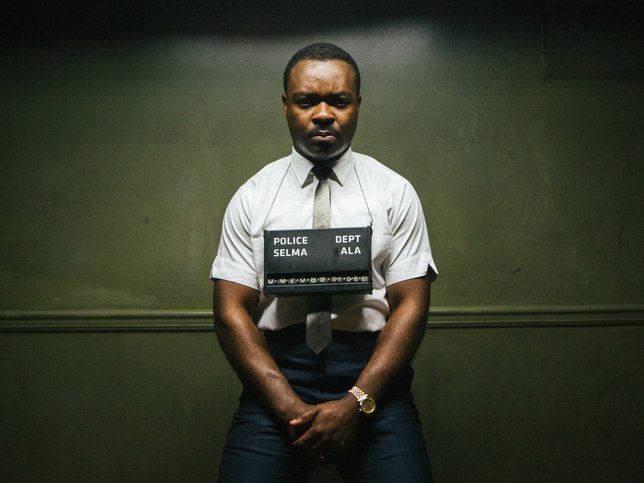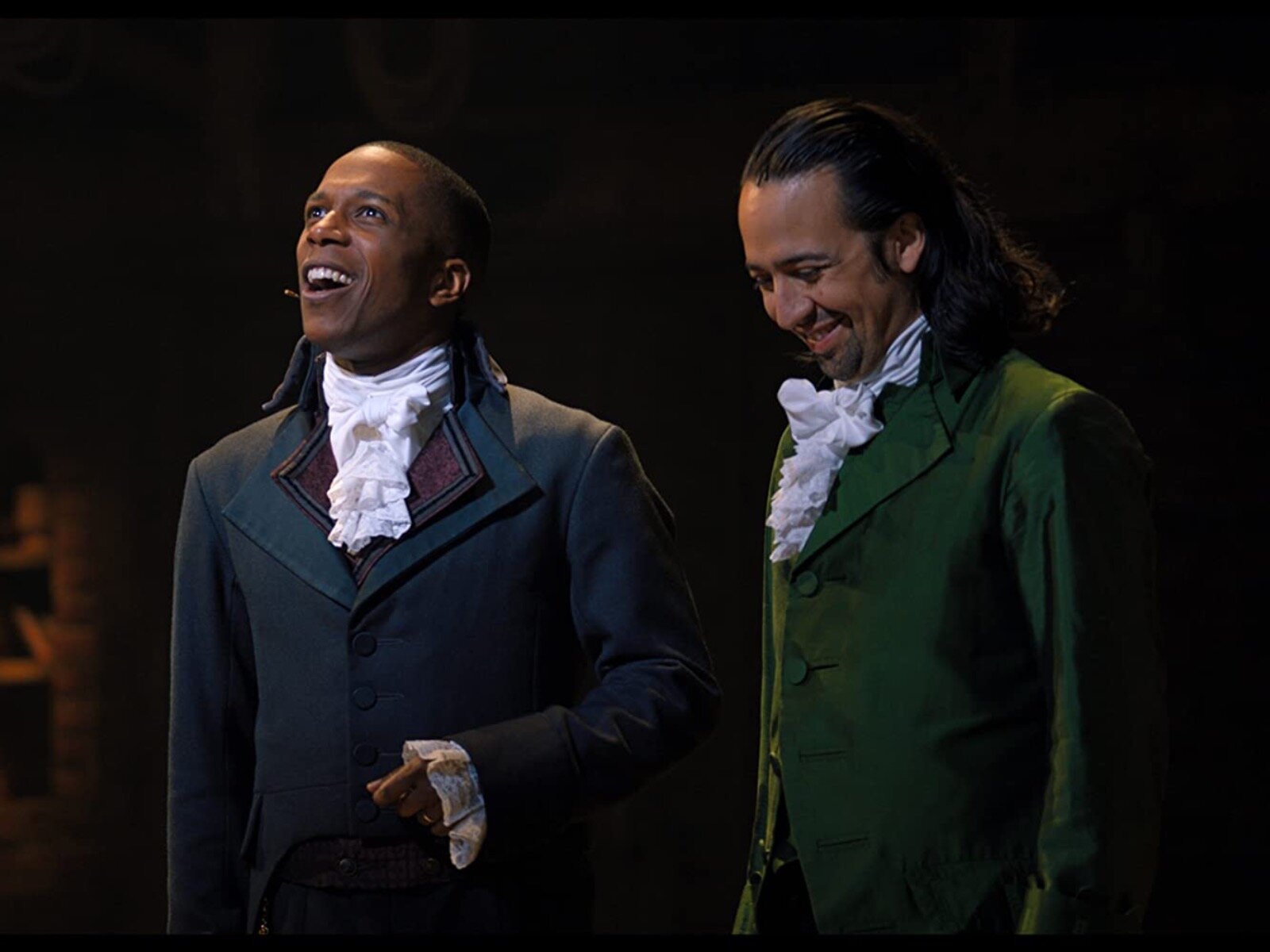"Timely" and "relevant" are the simple, easy complements to offer to the MLK drama "Selma." It’s not that the words don’t fit. You don’t have to jog far into recent memory (or even at all) before you begin painfully tripping on names like Dontre Hamilton, Eric Garner and Trayvon Martin. The movie’s relevance to America’s debates and struggles today is clear, well before the Oscar-nominated "Glory" plays over the end credits and Common’s reference to Ferguson pierces like a needle, an all-too-fresh reminder that the work just witnessed is far from over.
The problem with the word "timely," however, is that it can be an unearned compliment, an honor received for simply showing up at a good or fitting moment. The techno-thriller "Blackhat," for instance, is timely coming shortly after the Sony hack, but it won’t make its plot or casting choices any less distractingly silly.
"Selma" is much greater and more accomplished than "timely" gives it credit – or that its award season release and Important Movie surface may imply. On the most basic level, it may appear like yet another Great Man Oscar bait biopic. With its sterling cast and Ava DuVernay’s strong direction, however, "Selma" doesn’t play like that kind of film at all. Instead, it plays exactly like what many of those films are desperately reaching to be: a deeply powerful and deftly nuanced movie, one that beautifully captures the man and his mission – the greatness and the humanity, the personal and the political – with clear eyes, leaving the audience with teary ones thoroughly earned.
Fittingly, the audience hears the great orator (played by David Oyelowo, "Lee Daniels’ The Butler") before it sees him, practicing his acceptance speech for the 1964 Nobel Peace Prize. He cuts himself off though. Something’s not right – and he means neither his ascot nor the clear household tension between him and Coretta (Carmen Ejogo), a long conversational silence speaking and portending loudly.
He means receiving an award for a fight far, far from won. After his speech, his sentiment comes underlined by the horrific murder of four little girls in the 16th Street Baptist Church bombing in Birmingham and a scene where Jim Crow laws deny a black woman (a smartly cast, quietly performed Oprah Winfrey) her right to vote.
After an unproductive meeting with LBJ (played by Tom Wilkinson and portrayed not as a villain as popularly argued, but as a pragmatic not quite on MLK’s urgent timeline), King and the SCLC head to Selma, planning protests and a march from Selma to Montgomery in the hopes of grabbing the nation’s eyes and pushing the nation’s hand on making the vote truly equal for all.
Tensions begin boiling as soon as King and the SCLC arrive in town. A local punches King on his first visit. Later, the civil rights leader and others wind up in jail when a protest gathering outside the front of the town courthouse goes awry. They only escalate from there, eventually building to Bloody Sunday, the violent police assault perpetrated on the marchers on the Edmund Pettus Bridge, broadcast across the nation.
DuVernay, her third film but first time taking on a project of this magnitude, captures the moment in gripping, sorrowful fashion, mixing the horrific events, some loose narration by a New York Times reporter calling in his story and the impact of the footage making its way into living rooms and the White House.
It’s an exceptionally directed moment in an overall exceptionally directed film. There are a few missteps – the slo-mo death sequences feel like unnecessary dramatic underlining, and the FBI logs convey a paranoia and strain already being felt – but these are small flaws next to the big picture. The movie is beautifully shot and framed; images like the camera looking down on MLK in a church, the carpet a bright blood red, stay vivid in the memory.
One of its most impressive feats, however, is how it captures emotional weight on screen. There’s the weight of a crowd of people – and it always feels like a crowd of individuals, not extras. There’s the weight of a decision and the previous weight of contemplation. There’s the weight of words, DuVernay showing people absorbing and processing and hearing speeches and conversation. It’s a movie that doesn’t tell or shout of its importance; it’s felt, the gravitational force of history pushing down hard on everyone in almost every scene.
Then, of course, there’s the man shouldering much of that weight: MLK, played by Oyelowo. The talented Brit actor is faced with the two-part challenge of the role: capturing the grand figure of the famed leader (aided by DuVernay and cinematographer Bradford Young, often framing him and his shoulders big) while also playing him as the real, flawed human being he was.
Oyelowo is more than up to the task. At the podium or speaking to crowds, he is a commanding presence, his words – all incredibly written for this movie, as the production was unable to get the rights to MLK’s actual speeches – conveying assurance, certainty and power. He looks and sounds like MLK, but most of all, listening and watching Oyelowo feels like MLK, the controlled fire of his words magnetizing and moving the soul.
Yet Oyelowo’s all the more impressive quietly behind the scenes, capturing the real man – one who was often exhausted by the seemingly unending long road to history. The man feels large on screen; the moment feels even bigger, and even MLK struggles under its pressure and weight. His face, watching as an early protest falls apart before his eyes, reflects everything: heartbreak, disappointment, frustration. While in prison, that frustration grows, wondering what freedom they’re really earning here, what this fight will actually accomplish and if they can even win. It’s a question that haunts him throughout the movie, whether in a conversation with Jimmie Lee Jackson’s father in a morgue or a late car ride with John Lewis.
Paul Webb’s script digs into these personal complexities – including that King slept with other women, played out in a tense, terse conversation between Ejogo’s Coretta and Oyelowo’s King. The great orator is left here with few words, humbled, while Ejogo is just as strong and commanding as Oyelowo at a podium, playing a woman hardened by threats and the fog of death constantly hanging around her husband. DuVernay and "Selma" are smart enough – and trusts the audience enough – to know a man can be great and flawed, strong and weak, an icon and a human.
The screenplay is just as savvy and complex when it comes to the politics of the Selma-to-Montgomery marches. The film doesn’t soft-pedal the messy political drudgery. In fact, it works more as a political procedural – like an urgent, blood-pumping companion piece to Steven Spielberg's equally process-driven "Lincoln" – than a simple biopic, dramatically running through the complicated, heavily contemplated moves that made the final march and the eventual victory happen.
There were the other Black groups in town – SNCC, Malcolm X – who conflicted with King, either based on philosophy or simple pride. There was finding the right city, one with a fuse ready to explode on a national spotlight. As King notes to some young skeptical SNCC members, in order to make progress, they need to find the racist institution’s weak spots, places where mistakes will be made with cameras ready. Non-violence needs drama to work, and Selma had the elements of a fine stage. The movie manages to balance all of that – the power and complications of a great movement along with the power and complications of a great man – into one vivid, eye-popping and riveting picture.
And yes, the movie is timely. But the word is unnecessary, because when it’s told as well as it is here – with such richness, complexity and beauty – it will always be the right time for the story of "Selma." The time to see the value of united voices speaking out. The time to remember those – black, white and otherwise – who died for the greater good. The time to see the American dream working, to see hope win out over hate. The time to remember that in 2013, what MLK fought for here was partially invalidated by the Supreme Court. And the time to remember that the pages of history do not allow entry easily. It only looks simple when it’s in the books, and even then, it’s far from over.
As much as it is a gigantic cliché to say that one has always had a passion for film, Matt Mueller has always had a passion for film. Whether it was bringing in the latest movie reviews for his first grade show-and-tell or writing film reviews for the St. Norbert College Times as a high school student, Matt is way too obsessed with movies for his own good.
When he's not writing about the latest blockbuster or talking much too glowingly about "Piranha 3D," Matt can probably be found watching literally any sport (minus cricket) or working at - get this - a local movie theater. Or watching a movie. Yeah, he's probably watching a movie.







